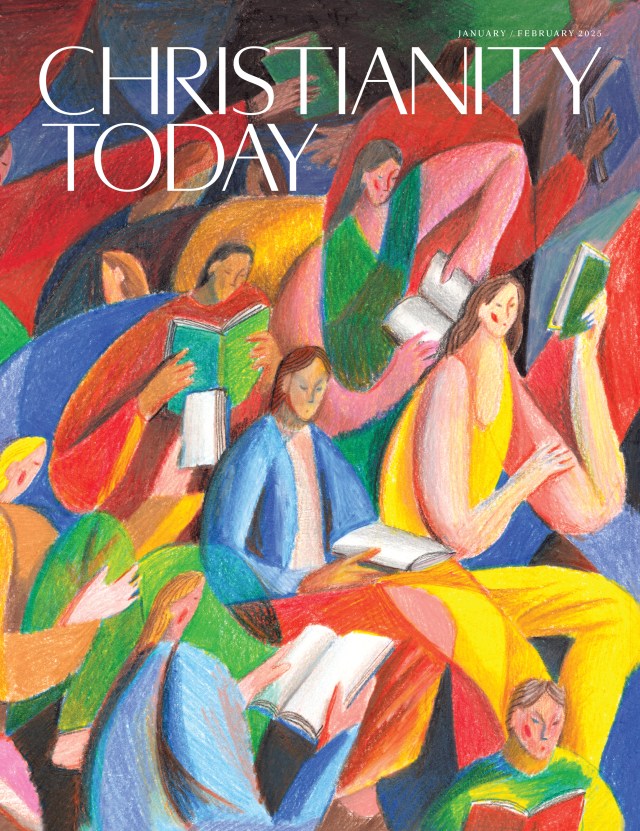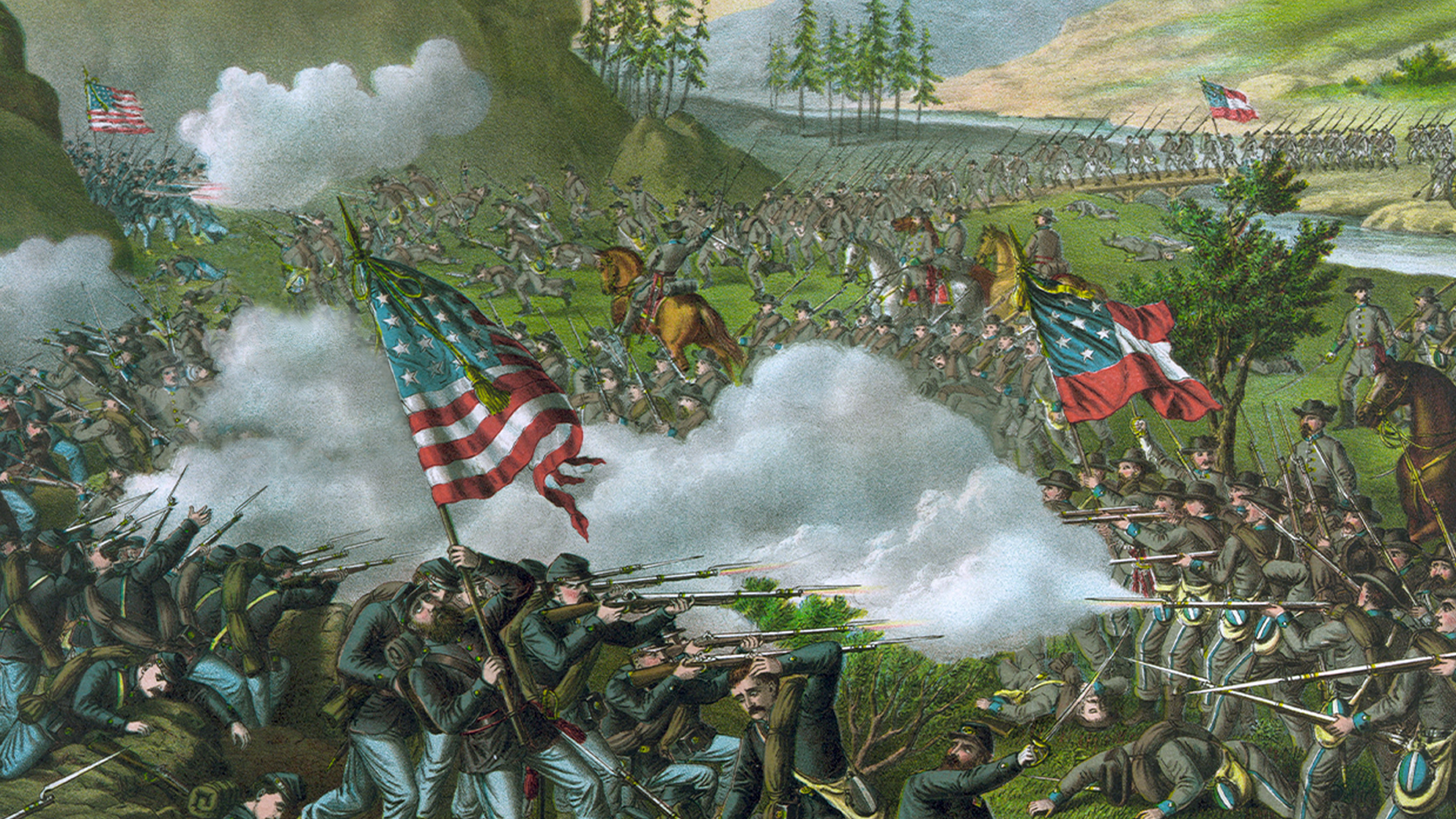
The Christian Nationalisms of North and South
On one level, the escalating tension that fueled the American Civil War has a straightforward explanation. One part of the country wanted to abolish legal slaveholding, or at least prevent its spread, while the other part of the country wasn’t prepared to give an inch.
No account of the conflict can overlook the centrality of divisions over slavery. Yet for North and South alike, these divisions flowed, in part, from a deeper set of opposing convictions about God’s purposes for the United States. Historian Richard Carwardine focuses on these fault lines in his latest book, Righteous Strife: How Warring Religious Nationalisms Forged Lincoln’s Union.
Daniel Gullotta, a researcher based at the University of Mississippi, reviewed the book for CT. Here’s a sample:
“As Carwardine illustrates, [the] competing visions [of North and South] became deeply embedded in party politics and beyond, intensifying sectionalism and setting the stage for an eventual crisis of union. In his analysis, the North’s reformist, postmillennialist outlook, rooted in evangelical Protestantism, envisioned America as a moral agent, divinely tasked with advancing God’s kingdom through progressive social change. By contrast, the South’s religious culture fused an honor-based ethos with a theological defense of slavery as divinely ordained. Southern ministers argued that slavery was sanctioned by Scripture and essential for maintaining Christian civilization, portraying abolitionism as a theological heresy.
“By the 1850s, this proslavery theology had hardened into a near-universal doctrine, with many Southern clergy framing secession as a sacred duty to defend a godly society against Northern radicalism. As Carwardine observes, ‘Each side was convinced of the righteousness of its own reforming impulse and the defective morality of the other.’ In short, this religious divergence was not merely a symptom of sectional tensions but a central catalyst of America’s bloodiest and most devastating war.
“Carwardine is not the first historian to examine the religious dimensions of the Civil War. Mark Noll has explored the theological fractures over slavery. Harry S. Stout has analyzed the war’s moral justifications. James P. Byrd has examined the Bible’s influence on wartime rhetoric. And Drew Gilpin Faust has considered how the conflict reshaped American attitudes toward death and the afterlife.
“Carwardine builds on this scholarship by centering the concept of religious nationalism, arguing that faith was not merely a cultural backdrop but a decisive force in shaping political allegiance, national identity, and Lincoln’s evolving leadership. Ultimately, he presents the Civil War as a profoundly religious crisis, not only in its theological debates over slavery but also in its competing visions of America’s divine purpose, particularly as they suggested analogies to Old Testament Israel. As Carwardine notes, such analogies cut both ways: If likening America to Israel implied receiving God’s blessings, it also implied the possibility of provoking his judgment. While the notion of America as a chosen nation dates back to its founding, the Civil War revealed deep fractures over what it truly meant to be chosen. Or, as Lincoln put it, whether the nation was an ‘almost chosen people.’”
Why AI Can’t Write
By the time that headline-grabbing AI programs like ChatGPT first made a splash, I had a sense of having reached my technological limits. Like most people my age, I could handle the basics of internet browsing, emailing, online shopping, and mild Facebook engagement. But my appetite for learning or incorporating anything else—beyond what my job requires—was rapidly dwindling.
So I’ve never really been curious enough to fool around with ChatGPT myself. But I’ve read accounts from others who have, and this has only intensified my instinctive belief that people working in the worlds of writing and editing should stay a million miles away.
John Warner, a veteran writing instructor, has a similar apprehension about ChatGPT and its competitors in the field of “generative” artificial intelligence. In his new book More Than Words: How to Think About Writing in the Age of AI, he is adamant in affirming that only human beings are capable of authentic writing and thinking.
Lin Johnson, a giant in the world of Christian writing, editing and publishing, reviewed the book for CT.
“Warner,” she writes, “starts with this goal: ‘I hope to convince you that we vastly underappreciate the importance of the act of writing to the work of being human, and that very little writing that has any meaning can be successfully outsourced to syntax-generation technology.’
“As a writer and editor, I confess I’ve not spent a lot of time researching generative AI. I know writers who outright dismiss it and writers who embrace it wholeheartedly, as well as writers who fall in between the two extremes. Although people use it to create published materials like blog posts, business newsletters, articles, and even books, the results tend to be flat, with no evidence of thinking and feeling, which Warner insists are part of being human.
“I’ve noticed that flatness and have not been impressed. Thus, I was prepared to like More Than Words before I started reading it. I was not disappointed.”

don’t miss
In his second inaugural address, delivered as the Civil War neared its end, Abraham Lincoln turned not to politics but to theology. “Both read the same Bible and pray to the…
Since its release in November 2022, ChatGPT has disrupted a myriad of fields, including education, publishing, market research, advertising, and online advice giving, sometimes with disastrous results. ChatGPT is just…
in the magazine

This first issue of 2025 exemplifies how reading creates community, grows empathy, gives words to the unnamable, and reminds us that our identities and relationships proceed from the Word of God and the Word made flesh. In this issue, you’ll read about the importance of a book club from Russell Moore and a meditation on the bookends of a life by Jen Wilkin. Mark Meynell writes about the present-day impact of a C. S. Lewis sermon in Ukraine, and Emily Belz reports on how churches care for endangered languages in New York City. Poet Malcolm Guite regales us with literary depth. And we hope you’ll pick up a copy of one of our CT Book Award winners or finalists. Happy reading!
more from christianity today
related newsletters
CHRISTIANITY TODAY WEEKLY: CTWeekly delivers the best content from ChristianityToday.com to your inbox each week.
CT PASTORS: Each weekly CT Pastors issue equips you with the best wisdom and practical tools for church ministry.
CT books
Each issue contains up-to-date, insightful information about today’s culture, plus analysis of books important to the evangelical thinker.
Delivered free via email to subscribers weekly. Sign up for this newsletter.
You are currently subscribed as no email found. Sign up to more newsletters like this. Manage your email preferences or unsubscribe.
Christianity Today is a 501(c)(3) nonprofit organization.
“Christianity Today” and “CT” are the registered trademarks of Christianity Today International.
Copyright ©2025 Christianity Today, PO Box 788, Wheaton, IL 60187-0788
All rights reserved.



